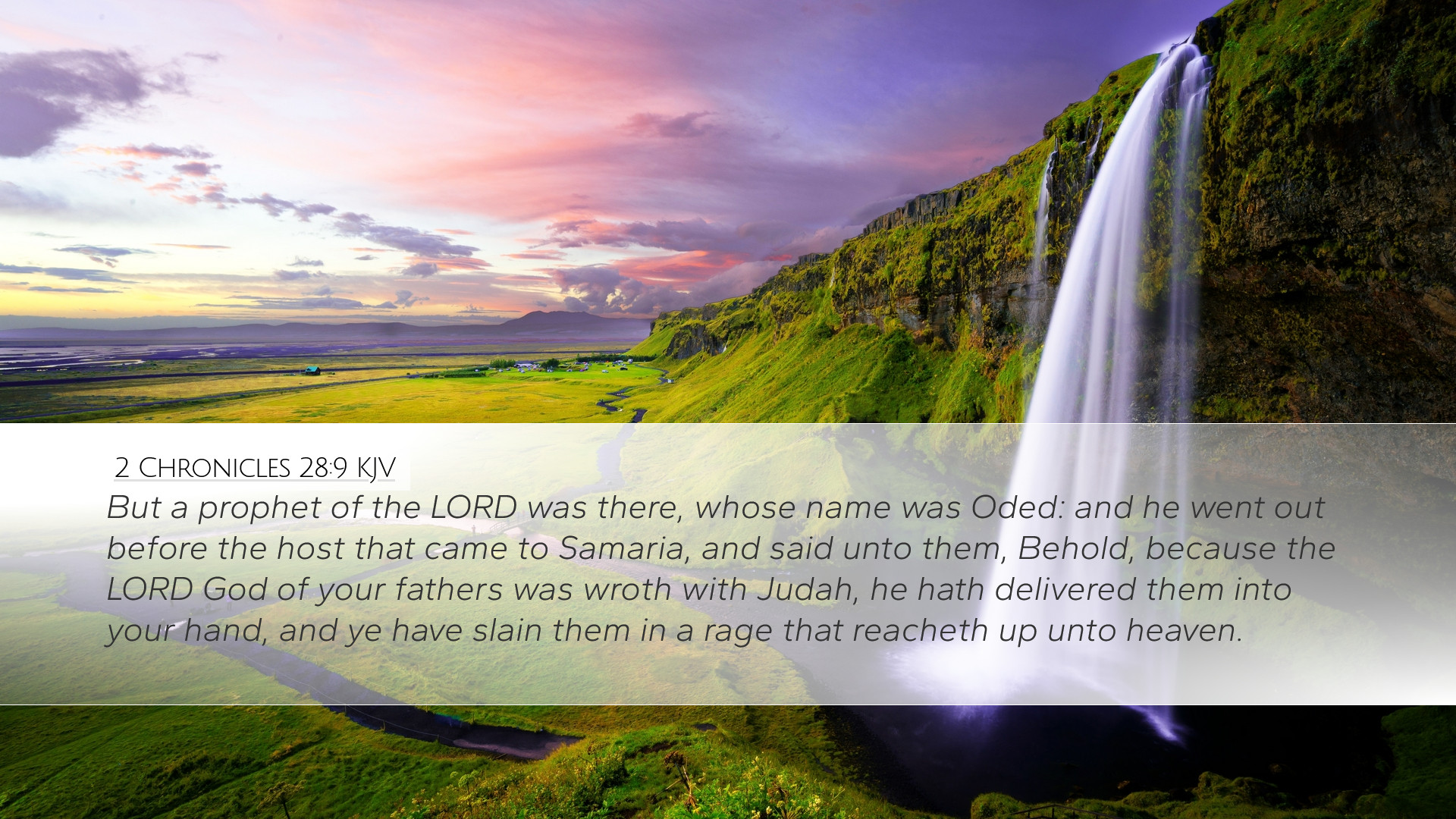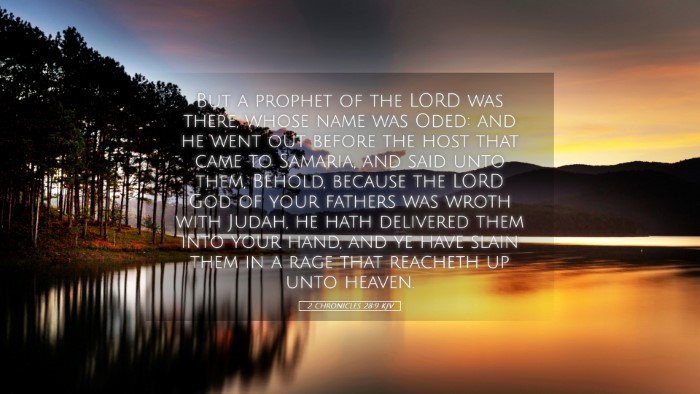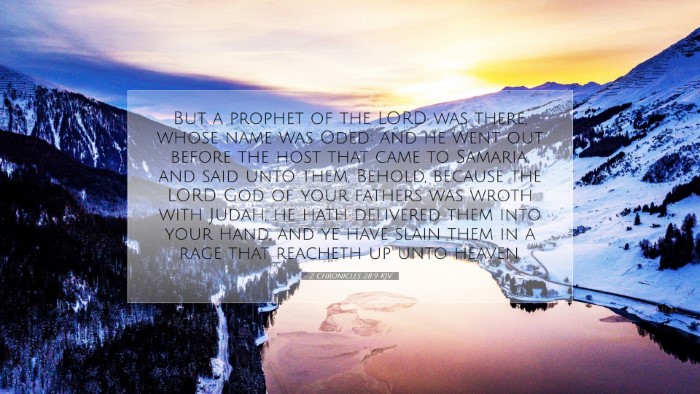Commentary on 2 Chronicles 28:9
2 Chronicles 28:9 states: "But a prophet of the Lord was there, whose name was Oded: and he went out before the host that came to Samaria, and said unto them, Behold, because the Lord God of your fathers was wroth with Judah, he hath delivered them into your hand, and ye have slain them in a rage that reacheth up unto heaven."
Contextual Overview
The narrative surrounding 2 Chronicles 28:9 takes place during the reign of King Ahaz of Judah. It occurs in the midst of a tumultuous period characterized by conflict with Israel and a decline in spiritual fidelity. The historical backdrop provides a rich context for understanding the significance of Oded's prophetic role.
Insights from Commentators
Matthew Henry
Matthew Henry emphasizes the providence of God in sending prophets during times of crisis. He notes that the presence of Oded, a prophet of the Lord, illustrates God’s mercy even amidst wrath. Henry explains that God's anger against Judah was a response to their idolatry, and yet, in spite of the judgment, God remained concerned for His people. Henry further articulates that Oded's message serves as a warning to the Israelites, reminding them that their victory over Judah was not a cause for pride but a divinely orchestrated judgment.
Albert Barnes
Albert Barnes focuses on the significance of the prophetic voice in an era marked by moral decay and spiritual blindness. He highlights that prophets like Oded were often the only means by which God communicated His truth to the people. Barnes interprets Oded's proclamation as an urgent call to accountability, indicating that the Israelites’ actions against Judah would be viewed as sinful due to the excessive severity of their wrath. He underscores the principle that divine retribution does not justify human vengeance, urging a reconsideration of ethics even in wartime scenarios.
Adam Clarke
Adam Clarke provides a detailed examination of the historical and theological implications of Oded’s prophecy. Clarke points out that Oded served as a mediator, warning the victors of their transgressions. He observes that the reference to God's wrath emphasizes the serious consequences of national sin and rebellion. Clarke elaborates on the phrase "a rage that reacheth up unto heaven," indicating that the level of violence and ferocity displayed by the Israelites was both excessive and abominable. He articulates that Oded's intervention was pivotal in steering the Israelites away from further sin, advocating for mercy rather than destruction.
Applying the Insights
This verse, accompanied by the insights of these commentators, encourages a multifaceted understanding of God's nature and His dealings with humanity:
- Theological Reflection: Pastors and theologians can draw from Oded's scenario to discuss the nature of divine judgment and mercy, exploring how God responds to national and individual sin.
- Ethical Consideration: The verse prompts discussions on the moral responsibilities of individuals and nations, particularly regarding the limits of justice and vengeance. It serves as a reminder that triumph must not lead to moral corruption.
- Prophetic Voice: The role of prophets in calling out sin is essential in any context. Current ministers and church leaders can reflect on the necessity of boldly proclaiming truth in a time when ethical dilemmas are rampant, following Oded’s example.
Concluding Thoughts
2 Chronicles 28:9 serves as a potent reminder of God's active involvement in the affairs of humanity, particularly regarding sin and justice. The insights from Matthew Henry, Albert Barnes, and Adam Clarke collectively enrich the understanding of this verse, emphasizing a call toward repentance, accountability, and the acknowledgement of God’s mercy.


